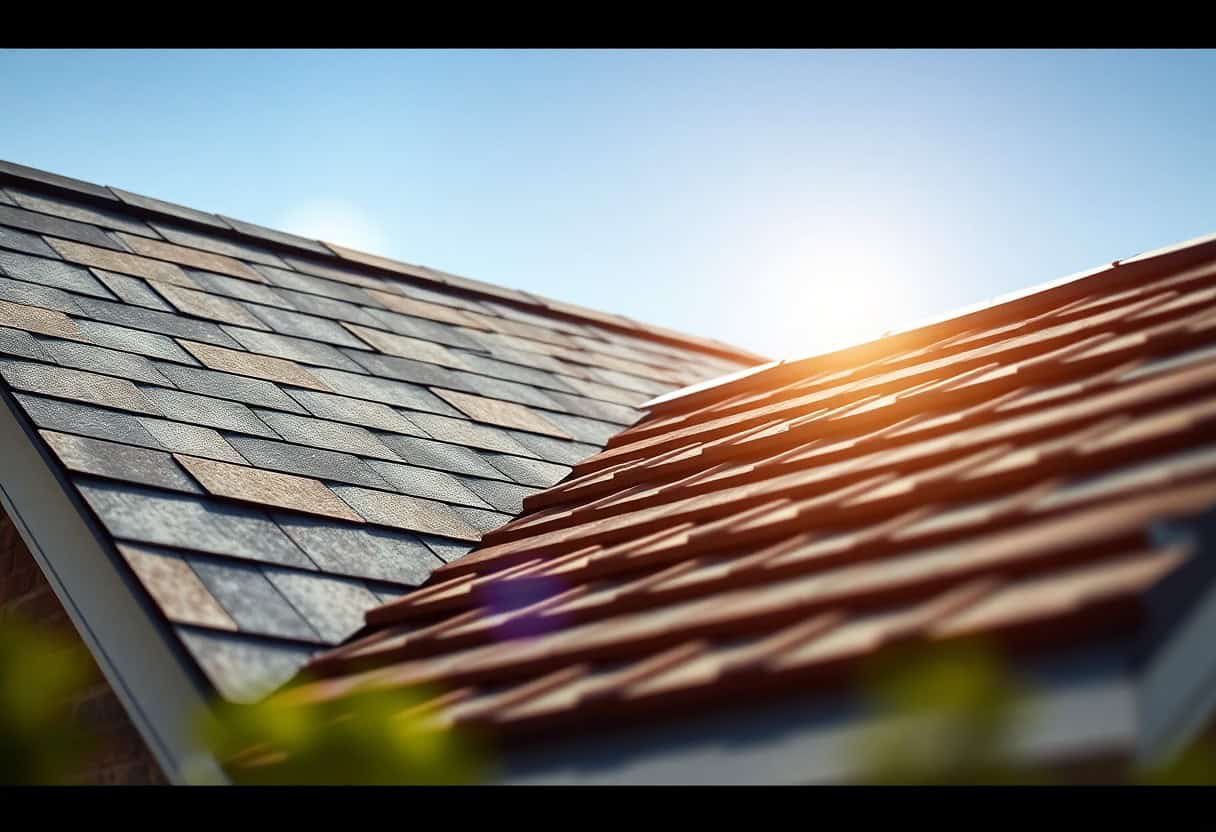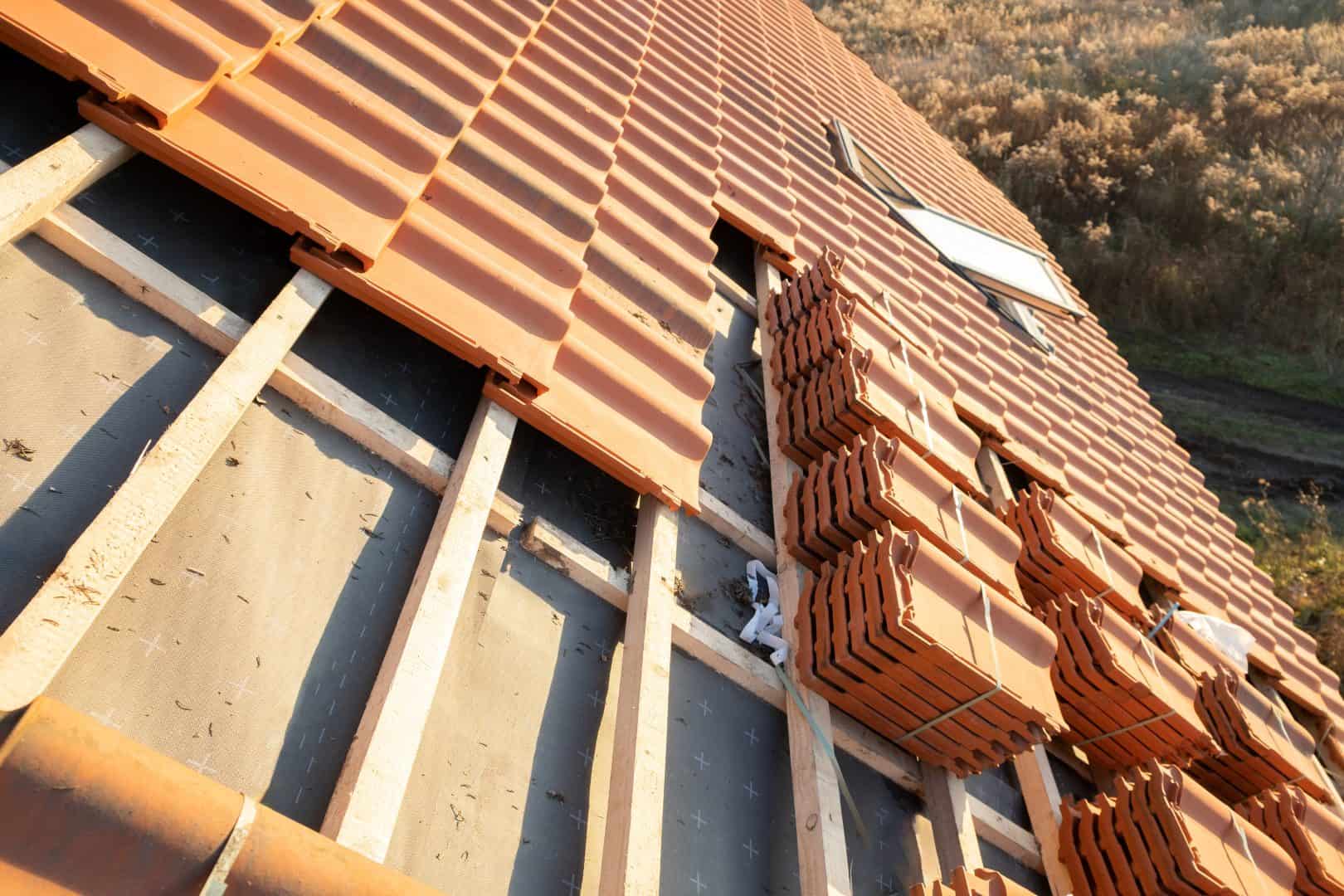How long will my new roof last?
Fill Out The Form And We'll Get Back To You

Most homeowners wonder about the lifespan of their new roof, as it is a significant investment that protects your home. Factors such as the materials used, the quality of installation, and local weather conditions play key roles in determining how long your roof will last. In this blog post, you will explore the average lifespans of various roofing materials and the maintenance practices you can adopt to extend the life of your roof further, ensuring your home remains safe and secure for years to come.
Factors Affecting Roof Longevity
To determine how long your new roof will last, several factors play significant roles:
- Material type
- Installation quality
- Climate and weather conditions
- Maintenance practices
- Roof pitch and design
After understanding these elements, you can better gauge the lifespan of your roofing investment.
Material Types
Above, the choice of roofing material greatly influences longevity. Common types include:
| Material | Expected Lifespan |
| Asphalt Shingles | 15-30 years |
| Metal Roofing | 40-70 years |
| Tiled Roofs | 50-100 years |
| Slate Roofing | 75-200 years |
This variety helps you pick the option that best fits your home and budget.
Installation Quality
Among the key factors affecting longevity, the quality of installation is paramount. Poor installation can lead to leaks, structural issues, and premature wear, significantly reducing the lifespan of your roof.
But investing in skilled professionals ensures that your roof is installed according to best practices and manufacturer specifications. This attention to detail not only maximises its lifespan but also enhances its performance, offering better protection against the elements.
Climate and Weather Conditions
Among the various aspects, climate and weather conditions directly impact how long your roof will last. Regions with extreme temperatures or heavy precipitation may require more durable materials.
Climate factors like intense sunlight, snow loads, and humidity can accelerate wear and cause damage over time. Choose materials that adapt well to your local climate to optimise your roof’s lifespan and reduce long-term repair costs.
Common Roofing Materials and Their Lifespan
One of the key factors in determining how long your new roof will last is the material used. Different roofing materials come with varying lifespans and maintenance needs. According to Roof Life Expectancy: How Long Your Roof Should Last, understanding these distinctions will aid you in making an informed choice.
Asphalt Shingles
Against common perception, asphalt shingles can provide a solid roofing option. Generally, they last between 15 to 30 years, depending on the quality of installation and maintenance. Proper upkeep is vital to achieve longevity from your shingles.
Metal Roofing
Behind its modern appeal, metal roofing is renowned for its durability. Typically, these roofs can last 40 to 70 years, making them a worthwhile investment for homeowners seeking longevity.
In addition, metal roofing is resistant to many environmental factors, including wind, rain, and fire. This resilience contributes to its extended lifespan, making it an excellent choice if you are looking for something that will withstand the test of time.
Tile and Slate
The longevity of tile and slate roofing is impressive, with some materials lasting over 50 years. Their natural durability often makes them a premium option that complements many architectural styles.
At the same time, investing in tile or slate can increase your home’s value due to their aesthetic appeal and durability. These materials require minimal maintenance, allowing you to enjoy a beautiful roof without constant worry about repairs.
Maintenance for Increasing Roof Lifespan
Many homeowners overlook the importance of regular maintenance, which can significantly extend the life of your roof. Ensuring you routinely inspect and maintain your roof can help identify potential issues before they escalate. You can learn more about this by checking out How Long Does a Roof Last? Warning Signs You Need a ….
Regular Inspections
Beside general maintenance, conducting regular inspections is imperative for detecting wear and tear. You should consider scheduling professional inspections at least twice a year to catch any potential problems early.
Cleaning and Repairs
Before any significant issues can arise, it’s wise to focus on cleaning and repairs. Regular cleaning of your roof helps to remove debris and prevent moss growth, which can damage your roof’s integrity over time.
Cleaning your roof not only enhances its appearance but also promotes its overall health. Remove leaves, branches, and any other debris that may accumulate, as they can retain moisture and lead to rot. Additionally, promptly address any repairs needed, such as fixing leaks or replacing damaged shingles, to prevent more extensive and costly damage in the future.
Signs Your Roof Needs Replacement
For homeowners, recognising the signs that your roof needs replacement can help prevent serious damage to your property. Look for indicators such as leaks, curling shingles, and widespread wear that may suggest your roof is past its prime. Addressing these issues early could save you both time and money.
Visible Damage
Above all, check for visible damage to your roof. Look for missing or cracked shingles, sagging areas, or discolouration that may indicate underlying problems. If you notice any of these issues, it’s wise to consult a professional to assess the extent of the damage.
Leaks and Water Damage
To properly assess your roof’s health, watch for leaks and signs of water damage inside your home. Stains on ceilings, walls, or mould growth can indicate that water is entering your living space, often a sign that your roof is failing.
Roof leaks can lead to significant long-term damage if left unaddressed. Water intrusion not only compromises the structure of your home but can also lead to mould and mildew growth, affecting air quality and your health. If you spot any signs of leaks, it’s imperative to act swiftly and consult a roofing professional to determine whether a replacement is necessary.
Choosing the Right Roofing Contractor
All roofing projects require careful consideration when selecting your contractor. It’s vital to choose a reputable professional who will ensure quality work, as this directly impacts the longevity of your new roof. To learn more about how to choose the right expert and the lifespan of various roofing materials, check out How Long Do Roofs Last? Plus How to Prolong Their ….
Qualifications and Experience
Between the qualifications and experience of a roofing contractor, you can gauge their ability to handle your project effectively. Ensure the contractor is licensed, insured, and has a solid track record in completing similar roofing jobs. It’s also wise to ask for references to validate their expertise.
Warranty and Guarantee
Any reputable roofing contractor should offer a clear warranty and guarantee on their work. A solid warranty serves as an assurance that the materials and workmanship meet high standards, providing you with peace of mind and protection against future issues.
Indeed, having a warranty in place is vital, as it not only safeguards your investment but also reflects the contractor’s confidence in their services. A warranty can cover labour and materials for a specified period, while a guarantee may extend to certain defects or issues that arise after installation. Be sure to discuss the details and ensure you understand the terms, so you’re fully informed of your rights and responsibilities.
Costs Associated with Roof Replacement
Despite the need for a new roof, you should be aware of the various costs that can arise during the replacement process. The overall price is influenced by factors such as materials, labour, and any additional repairs required. Estimating comprehensive costs can help you prepare financially, ensuring your investment yields long-lasting benefits.
Budgeting for a New Roof
Above all, establishing a clear budget for your new roof is crucial. Start by gathering quotes from multiple roofing contractors to get a realistic understanding of the expenses involved. This will allow you to allocate funds effectively and avoid financial strain during the project.
Financing Options
On occasion, financing options can make your roof replacement more manageable. Many roofing companies offer payment plans, while you may also consider personal loans or home equity lines of credit to spread the costs over time.
Replacement projects can sometimes put a strain on your finances, but there are several financing options available to ease the burden. Look into loan programs specifically tailored for home improvements, as they often come with competitive interest rates. Additionally, local government schemes may provide grants or assistance for roof replacements, helping you reduce upfront costs while ensuring your home remains safe and affordable.
To wrap up
Summing up, the longevity of your new roof largely depends on the materials used, the quality of installation, and the climate conditions in your area. Asphalt shingles typically last around 20-30 years, while metal roofs can endure 40-70 years or more. Regular maintenance and prompt repairs when necessary will play a significant role in extending your roof’s lifespan. By being proactive, you can maximise the durability of your new roof and ensure it provides reliable protection for your home for many years to come.
FAQ
Q: How long can I expect my new roof to last?
A: The lifespan of your new roof depends on several factors, including the type of roofing material used, the quality of installation, and the local climate conditions. Generally, asphalt shingles can last between 15 to 30 years, while metal roofs can endure for 40 to 70 years. Slate and tile roofs are known for their longevity, often lasting over 50 years when properly maintained.
Q: What factors can affect the lifespan of my roof?
A: Several factors can influence the longevity of your roof. These include the quality of the materials selected, the skill and experience of the contractors performing the installation, and ongoing maintenance. Environmental elements such as extreme weather conditions, heavy snowfall, or prolonged exposure to sunlight can also play a significant role in determining how long your roof will last.
Q: How can I ensure my roof lasts as long as possible?
A: To maximise the lifespan of your roof, it is necessary to conduct regular inspections and maintenance. This includes clearing debris from gutters, checking for signs of damage such as missing shingles or leaks, and addressing any issues promptly. Additionally, investing in a high-quality roofing material and hiring experienced professionals for installation will significantly contribute to the durability of your roof.
Re-Roof of Bungalow
The guys made a fantastic job of replacing the roof on our bunglaow. They were fasy, relaible and excellent value for money.
Chimney Removal
We employed Wrights Roofs to take down our very old chimney – tht had seen better days. They carefully removed and made good the area where the chimney was. Really impressed.
New Roof
We had an extension built and Wrights came and put a new roof on. They were brilliant, no fuss, great value for money. Thank you.
Roofs, Flat Roofs Chimneys and Solar Panels
If you need roof work on your home, please complete the form or call us today.

